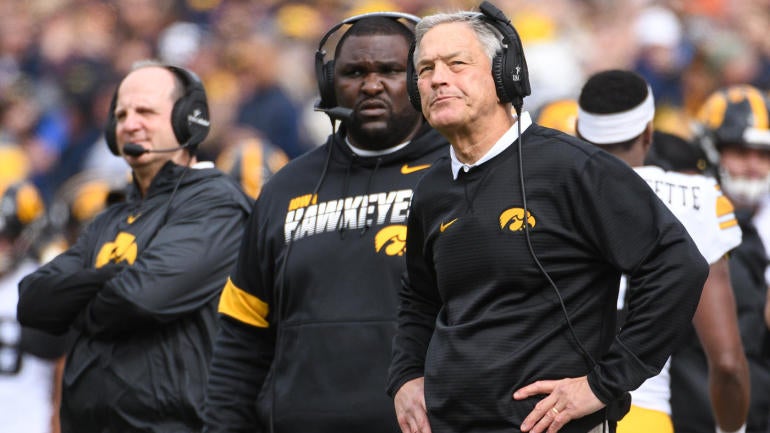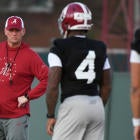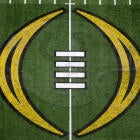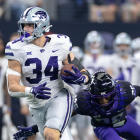
An external review of the Iowa football program concluded that it 'perpetuated racial or cultural biases and diminished the value of cultural diversity,' according to a 28-page report released by Kansas City law firm Husch Blackwell. The firm interviewed 45 current players 29 former members and 36 current and former employees to determine the range of experiences they had while members of the Hawkeyes. The report comes after multiple former Iowa players voiced their frustrations with disproportionate treatment of Black players when compared to their White counterparts. Longtime strength and conditioning coach Chris Doyle was dismissed from the program after being singled out by the players.
The report expressed concern of the racial climate of Iowa football. Several Black players told the firm that they punished for no reason, bullied by coaches every day and disproportionately singled out. One Black player told investigators that he was yelled at, kicked out of training and required to do 10 hours of community service simply for spitting on the turf. That incident was corroborated by one former coach and two current players. Another player said that he was chastised for dancing and singing, while White players received no such punishment.
"Being an Iowa football player was a daily struggle for black players," one former Black player said. "We were punished for no apparent reason, singled out by coaches, and threatened and ridiculed every day. It is hard to explain how difficult it was. Think about being under pressure every day for 4 years solely because of your race. That is how it was for me and my black teammates."
Investigators found that coach Kirk Ferentz was made aware of potential mistreatment "a couple of times" over the last four years and that no changes were made.
Multiple individuals interviewed said that Black players were subjected to more drug tests and White players. Ferentz acknowledged that the process needs to be changed, but that Black players weren't disproportionately singled out.
The report also indicates that a coach with strong connections to NFL teams and scouts would "blackball" players, mostly Black players, whom he did not like. A former player who now plays in the NFL said the coach told scouts that he was "not a team guy and had an attitude issue." Yet another said that the coach told his current NFL team that he was a "toxic player" that would "ruin their team." He also said that the coach told scouts hat he is "cocky, irresponsible, and arrogant."
Many players also expressed general mistreatment of players throughout the program. That treatment included the use of sleep bands and body weight. That treatment was allegedly designed to "beat you down and hound you," one current player said. Multiple players said that the general feel in the program was "if you don't like how we do things you can leave."
Multiple coaches denied this allegation.
"I make it a habit to never, ever say a negative word about anybody on our football roster, ever," one coach stated. "Just always point out the positive and let the NFL scouts watch the film and make their determinations."
Many individuals interviewed in the report described 'The Iowa Way' as one of uniformity and discipline that discourages individualism. That culture is described as being one built around the stereotype of a 'clean-cut, White athlete from a midwestern background.' The culture discouraged jewelry, clothing and tattoos, and required uniformity of hair styles.
Multiple former players said that coaches kept lists of players who didn't live up to "The Iowa Way." An employee told the investigators that they overheard coaches telling players you "don't want to become a 'list guy.'" Multiple current and former coaches had different views of who was included on that list. One said the list identified players who have academic issues. Another said that it was for players who violated the rules. Yet another coach said that players on the list were identified for sleep and weight issues, which caused unnecessary stress and fear within the program.
"This is an important time for me as a leader and for our program," Ferentz said in a statement. "This review brings us face-to-face with allegations of uneven treatment, where our culture that mandated uniformity caused many Black players to feel they were unable to show up as their authentic selves. I want to apologize for the pain and frustrations they felt at a time when I as trusted to keep each of them a better player and a better person."
The report concluded that current players and coaches all agreed that 'immediate and positive changes since the inception of the review.' It suggests that the school develop a plan to improve the culture of the program. That plan should include removing biases, the encouragement of players to report concerns of mistreatment and further push the policy against retaliation against players in the program.
"This is a moment of truth for me," Ferentz said. "The release of this independent review is not the end of the conversation, it is the beginning of the next chapter in our program's history."






















